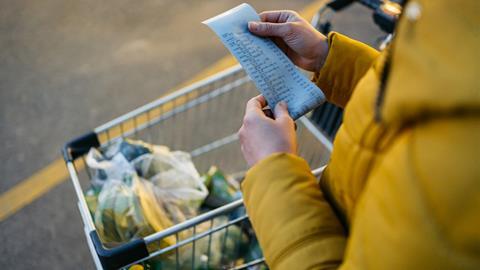The supermarkets are doing a great job for shoppers right now. In this week’s Grocer 33 price comparison survey (which features the discounters in a so-called Super 33) annual inflation is running at 0.1%.
So you would think the question of supermarket profiteering had been put to bed. But no. As the Efra select committee enquiry rumbles on indeterminately, MPs grilling supermarket executives this week seemed unable to grasp the circle they’re trying to square.
On the one hand, last year’s Competition & Markets Authority investigation concluded that supermarkets were not profiteering from the cost price increases they were pushing through. Whereas this one questions why farmers haven’t been getting their fair share of the action.
So what does the government want? To keep price inflation to a minimum through effective competition? Or to keep farmers afloat in their hour of need – having hung them out to dry over seasonal labour and other government policy.
Of course, the needs of farmers are as great as any fmcg giant. Greater in fact. But this is what happens in a free market: as supermarkets play hard ball the smallest, least differentiated and value-added, and most poorly trained have the weakest hand in negotiations.
It’s true supermarkets have indeed increased profits, but it’s invariably taken multi-billion pound cost-cutting programmes (which have also funded price reductions for shoppers and massive pay increases for staff) – as well as disposals and other exceptional items – to achieve margins of less than 3%.
Of course there are questions to be answered over the treatment of farmers (albeit not the questions being asked by the MPs). For example, why was Aldi, trading for years on its support for British farmers, and the no2 or no3 in most of these categories by share, not required to attend, especially having fallen so far down the Grocery Code Adjudicator’s ‘fairness’ rankings?
Read more:
-
The deforestation regulation clock is ticking for food and drink
-
Can Tesco take Clubcard personalisation to new heights?
-
Brexit border delays avoided but businesses remain in the dark over costs
The supermarket executives who had volunteered to come forward put their best case forward, stressing the lengths they had gone to support farmers via extra payments and specification tweaks. But a better briefed MP might have contrasted the £750m that Tesco gave back to shareholders last year (and a further £1bn this year) with the £12m in funding to support pig farmers and £20m to egg farmers.
In any case it’s not just supermarkets playing hard ball to keep prices down. As the FWD noted, in its submission to the Efra enquiry: “Wholesalers supplying food and drink to schools, hospitals, care homes and prisons across the UK, have attempted to renegotiate their public sector catering contracts at least once but have been told there is no room for further renegotiations, even though the cost of doing business continues to rise.”
It adds: “This means that certain wholesale businesses are servicing their public sectors contracts at a loss due to contractual stipulations they have not been able to navigate around or because they have been unable to negotiate sufficient price increases as price reviews are either once or twice a year.”
The damage this is doing isn’t just to wholesalers and the farmers that supply them either.
“In schools the effects of food inflation and contractual prices has led to wholesalers having to offer smaller and less nutritious lunches for students to save costs. Some schools have even resorted to offering only cold packed lunches due to energy cost constraints. This situation has the potential to exacerbate food insecurity, especially among vulnerable members of society. Furthermore Defra’s ambitious target for 50% of food to be locally sourced will not be reached as locally produced products are generally more expensive.”
Who is this bully that refuses to negotiate, to the detriment of farmers and children and the sick and the needy? HM Government of course.




















No comments yet